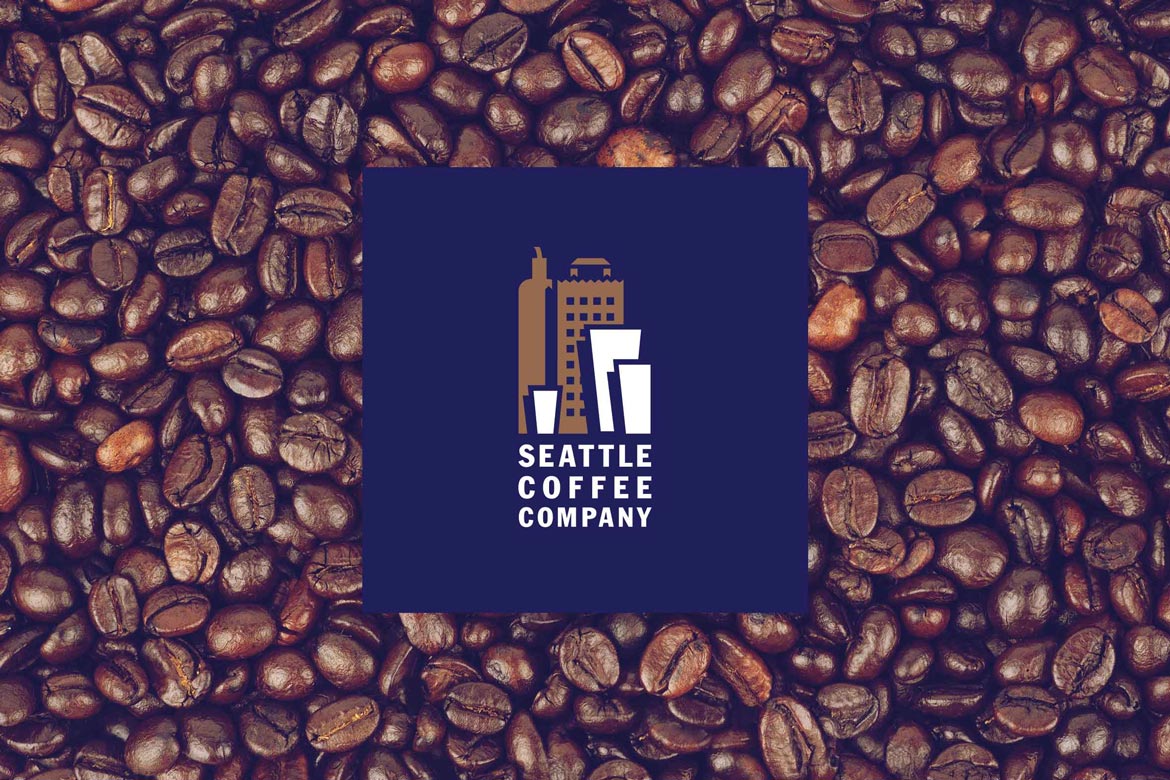Paying and tipping made easier at Seattle Coffee Company
Seattle Coffee Company understands that while its business is coffee, customer service is equally as critical. To this end, it partnered with Transaction Junction to make both payments and tipping a simple and easy process.
In the hospitality industry, the need to focus on customer service is paramount, and delivering such service effectively is predicated on two specific angles. The first of these lies in having well-trained, focused staff to ensure that all the customer’s requirements are properly met. The second lies in the ability to facilitate easy payment, regardless of which payment method the customer chooses to use.
For Seattle Coffee Company, the first area of service is taken care of, as its people are hard-working, completely customer-focused and have a reputation for building strong and lasting relationships with regular customers. However, for a long time, the business operated without having its credit card facility and its point of sale (PoS) system integrated.
Not only did this create additional challenges for customers paying and tipping by credit card, but it also opened the door to possible inaccuracies and errors with the till not to mention potential theft and fraud.
Launched in London by a husband-and-wife team who were inspired by their experience of speciality coffee brands in their hometown, Seattle Coffee Company was then brought to South Africa and the first local store opened its doors in Cavendish Square, Cape Town in November 1997.
The company strives to capture the artisanal approach to the coffee craft – traceability of crops; handpicked harvesting; hand roasting; and manual espresso production – a ‘quality at-all-costs’ approach that shines through in everything the business does. The company operates its speciality stores in key urban areas, as well as along the major holiday routes, providing an additional level of comfort to those who are travelling, yet still like to see and have something familiar while on their journey.

According to Rossiter, General Manager at the Seattle Coffee Company, the organisational culture is one based first and foremost on relationships. To this end, he says, the business takes its relations with suppliers seriously, which is why it considers a good organisational fit a key prerequisite.
“Our relationship with Transaction Junction has been going since 2017, when we first decided to improve our PoS set-up. Our meeting with them came about through our strong relationship with Food Lover’s Market – the company is a shareholder in Seattle Coffee Company – and when we were shopping around for a supplier to help us improve our PoS situation, the Food Lover’s team recommended Transaction Junction,” he explains.
“Of course, we researched and engaged with other potential providers, who turned out to be too ‘corporate’ in their approach – to put it another way, they were all suits and flash, whereas we prefer a more relaxed and laid-back approach.”
“ After meeting with the Transaction Junction team, we knew instantly that their focus on what needs doing, rather than on airs and graces, suited us perfectly.”
Says Craig Duggan, Head of Commercial at Transaction Junction. “Seattle Coffee Company delivers a fantastic customer experience; they know what their customers need and continuously strive to exceed their overall experience. Our working relationship is collaborative and engaging, helping us to appreciate and understand the needs of their business. Constant innovation is exactly what payments are all about and tailoring our solutions to meet Seattle Coffee Company’s ideas is precisely where the value lies in our relationship.”
Rossiter describes Seattle Coffee Company’s ‘before’ PoS environment, as ‘totally manual’, with no integration at all between the credit card machine and the PoS. “Our PoS requirements are generally fairly simple in comparison to some of the larger chains. While we require central reporting, until recently, running a PoS unit and a separate credit card machine worked just fine in our standard café environment.”
However, continues Rossiter, this approach also meant that when customers came to settle their bill via credit card, they were presented with a separate credit card payment device.
“Now, thanks to Transaction Junction, the entire PoS system is connected, meaning that all payments are facilitated by the PIN Entry Device (PED) on the front counter. This makes cash ups simpler, reduces invoice tallying errors and means there is no handling of the credit card device by employees. Now the customer simply taps and goes or uses the PED in front of them. This means little chance for any fraud or card-skimming to occur.”
“This change was driven, at least in part, by our customers who let us know about their desire to give our baristas credit card-facilitated tips. Until we changed to an integrated system, this had not been allowed because of the potential spectre of fraud that it raised. However, with an integrated PED that always points towards the customer side, they are now totally in control of the tip amount they choose to give.”
At Seattle Coffee Company, he continues, it goes without saying that while the business is coffee, customer service is equally as critical.
“Think about it: great coffee allied to an average customer service ultimately adds up to an overall average experience. On the other hand, if both coffee and service are equally great, it creates the kind of experience that every customer wants to come back to,” states Rossiter.
“When I say that our people are one of our greatest assets, I am not overstating anything. Not only are our employees highly motivated to deliver top class customer service, but they excel at it to such a degree that customers often develop strong relationships and even friendships with our staff – to the point where they are even sent Christmas hampers by certain customers.”
The unique customer-barista dynamic prompted Seattle Coffee Company to engage with Transaction Junction about ways to fulfil the customers’ wish to be able to offer tips via credit card. The new solution was implemented during the Covid-19 lockdown period when the hospitality industry was closed. Rossiter points out that this functionality was greatly welcomed by staff on their return to work.
“We have some stores where employees can earn tips of around R600-R700 on any given day. Since we introduced the credit card tipping functionality, their tips have almost doubled.”
“Good customer service is only delivered by happy staff members, and employees, of course, are only happy if they know the business cares for their wellbeing. It goes without saying that when we saw there was an opportunity to implement a system that would benefit them, while not posing any risk to the customer, we leaped at it.”
Moreover, he continues, it has created an ongoing cycle of improvement. This is because the staff are happy to receive larger tips, so they provide better customer service; customers are happier with the improved levels of service, and naturally they tip more.
With no need for a separate PoS and credit card machine, Rossiter suggests that this means fewer hands touching the end-user devices, thereby helping to address one of the many challenges of Covid-19. All told, it improves things, since there is no need to hand over a credit card and often no need to even touch the keypad, thanks to tap-and-go.
The other challenge in the marketplace is third-party payment providers and the growing demand from customers to be able to use any provider to settle their bill. Rossiter explains that Masterpass makes it a simple matter for the customer to use their cellphone to pay their bill as the majority of third-party payment providers are available through the Masterpass application.
“Masterpass is also uniquely beneficial for reducing the potential to pass on the virus, since the customer can simply use their phone to make a payment, meaning no touching or exchanging of cards, cash or devices.”
Says Duggan, “Although the interoperability benefits offered by Masterpass, in conjunction with SnapScan and Zapper, created an obvious benefit of going the Masterpass route for implementation, more recent news confirmed that the interoperability mechanisms provided for are proving to be a challenge for the industry as a whole. Despite this, Transaction Junction continues to engage with SnapScan and Zapper, working together to implement a solution that provides Seattle Coffee Company and its customers with the ability to transact easily. We have a shared vision to facilitate a significant improvement to the overall customer journey.”
When asked if there were any challenges with implementing the new Masterpass solution, Rossiter suggests that the only real issue was to ensure that the company’s baristas understood exactly how the Masterpass offering works, to be able to properly communicate this to customers.
This was solved through educational training videos to its internal teams, and in-store posters to assist customers in understanding that they are now able to pay with any of the apps listed on the poster.
“The credit card tipping functionality, tap-and-go offering and Masterpass are all critical benefits we have gained through our relationship with Transaction Junction, and which have significantly and positively improved things for us. Further, this has led to a reduction in transaction times, which means the customer experiences a more rapid turnaround when waiting to pay, which makes them happier.”
“This is really such cool functionality to work with, and while we aren’t surprised, we are certainly pleased with everything Transaction Junction has done. I believe the key to our ongoing success here is our relationship with them.”
“When it comes to Transaction Junction, nothing is too difficult or too much trouble to test or to implement. Best of all, our relationship remains easy, friendly, and informal, which makes it a pleasure to get things done without any real stress. They are the kind of partner we would have around for coffee any time,” he concludes.
Today, Seattle Coffee Company remains independent of any international parent company and maintain their roots as an exclusively South African, family-run business.
Seattle Coffee Company strives to capture the artisanal approach towards their craft – traceability of crops; handpicked harvesting; hand roasting and manual espresso production – a ‘quality at-all-costs’ approach that cascades down from farm to the cup in your hand. They firmly believe that the quality of their beans is directly related to the quality of the lives their farmer’s lead.
Through their partnership with Union Hand Roasted, they have established direct relationships with each farmer or co-operative, working closely with them to produce the highest quality product as well as supporting them and their communities. Along with regular visits to farms, they pay far above commodity prices – investing financially into their lives and ultimately into the quality of the beans they produce. Their beans are then hand-roasted in the seaside suburb of Muizenberg, Cape Town.
To pair with their coffee, they have put together a food offering available in stores that stands shoulder-to-shoulder with their coffee – hand-made and artisanal snacks for which you will come back time and again, The Way You Like It.

